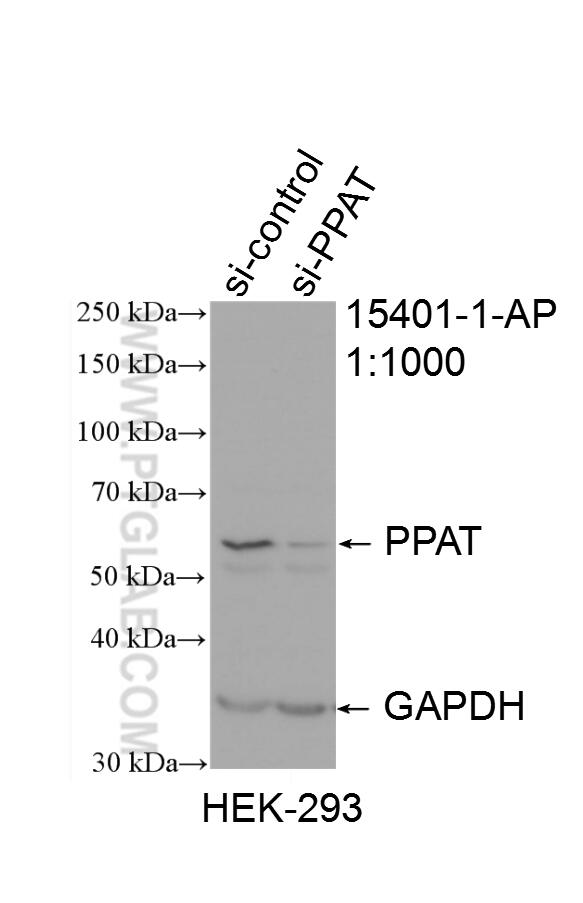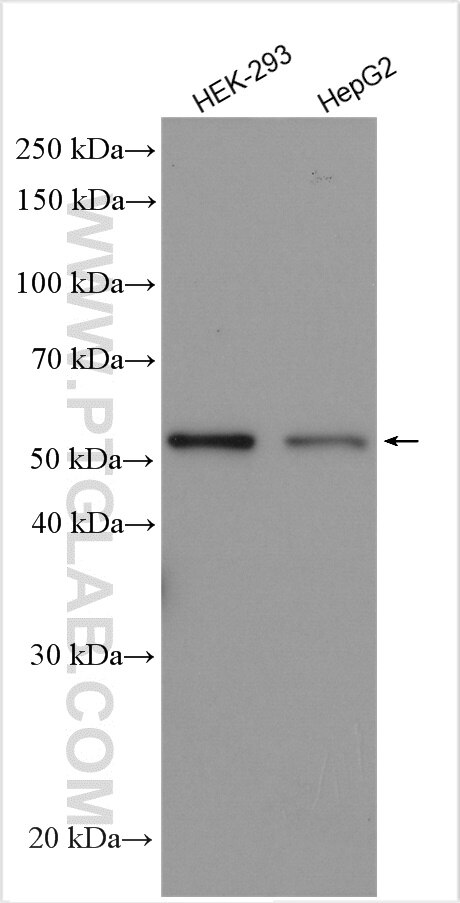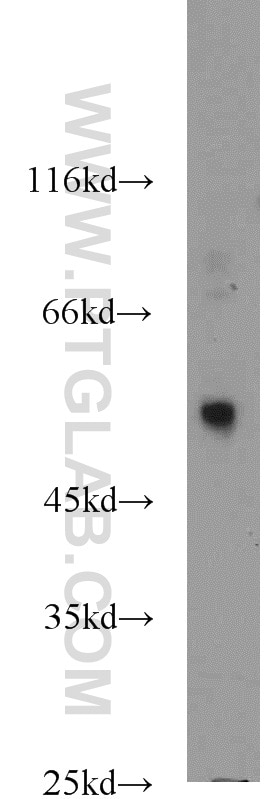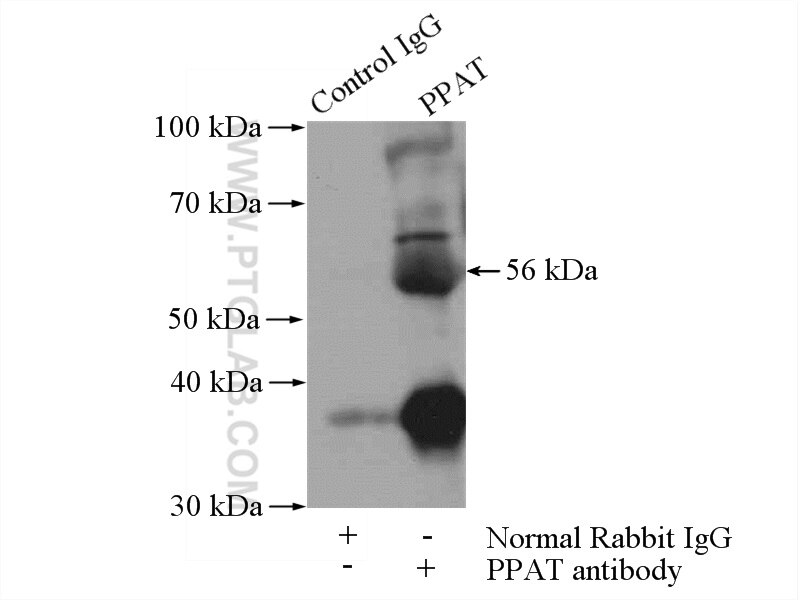- Featured Product
- KD/KO Validated
PPAT Polyklonaler Antikörper
PPAT Polyklonal Antikörper für WB, IP, ELISA
Wirt / Isotyp
Kaninchen / IgG
Getestete Reaktivität
human, Maus, Ratte
Anwendung
WB, IHC, IP, ELISA
Konjugation
Unkonjugiert
Kat-Nr. : 15401-1-AP
Synonyme
Geprüfte Anwendungen
| Erfolgreiche Detektion in WB | HEK-293-Zellen, HepG2-Zellen |
| Erfolgreiche IP | HepG2-Zellen |
Empfohlene Verdünnung
| Anwendung | Verdünnung |
|---|---|
| Western Blot (WB) | WB : 1:2000-1:10000 |
| Immunpräzipitation (IP) | IP : 0.5-4.0 ug for 1.0-3.0 mg of total protein lysate |
| It is recommended that this reagent should be titrated in each testing system to obtain optimal results. | |
| Sample-dependent, check data in validation data gallery | |
Veröffentlichte Anwendungen
| KD/KO | See 3 publications below |
| WB | See 24 publications below |
| IHC | See 1 publications below |
Produktinformation
15401-1-AP bindet in WB, IHC, IP, ELISA PPAT und zeigt Reaktivität mit human, Maus, Ratten
| Getestete Reaktivität | human, Maus, Ratte |
| In Publikationen genannte Reaktivität | human, Maus, Ratte |
| Wirt / Isotyp | Kaninchen / IgG |
| Klonalität | Polyklonal |
| Typ | Antikörper |
| Immunogen | PPAT fusion protein Ag7618 |
| Vollständiger Name | phosphoribosyl pyrophosphate amidotransferase |
| Berechnetes Molekulargewicht | 57 kDa |
| Beobachtetes Molekulargewicht | 50-56 kDa |
| GenBank-Zugangsnummer | BC004200 |
| Gene symbol | PPAT |
| Gene ID (NCBI) | 5471 |
| Konjugation | Unkonjugiert |
| Form | Liquid |
| Reinigungsmethode | Antigen-Affinitätsreinigung |
| Lagerungspuffer | PBS with 0.02% sodium azide and 50% glycerol |
| Lagerungsbedingungen | Bei -20°C lagern. Nach dem Versand ein Jahr lang stabil Aliquotieren ist bei -20oC Lagerung nicht notwendig. 20ul Größen enthalten 0,1% BSA. |
Protokolle
| PRODUKTSPEZIFISCHE PROTOKOLLE | |
|---|---|
| WB protocol for PPAT antibody 15401-1-AP | Protokoll herunterladen |
| IP protocol for PPAT antibody 15401-1-AP | Protokoll herunterladen |
| STANDARD-PROTOKOLLE | |
|---|---|
| Klicken Sie hier, um unsere Standardprotokolle anzuzeigen |
Publikationen
| Species | Application | Title |
|---|---|---|
Science mTORC1 induces purine synthesis through control of the mitochondrial tetrahydrofolate cycle. | ||
Cancer Cell Nrf2 redirects glucose and glutamine into anabolic pathways in metabolic reprogramming. | ||
Mol Cell ERK2 Phosphorylates PFAS to Mediate Posttranslational Control of De Novo Purine Synthesis. | ||
Nat Commun A shift in glutamine nitrogen metabolism contributes to the malignant progression of cancer. | ||
EMBO J UHMK1 promotes gastric cancer progression through reprogramming nucleotide metabolism.
|





